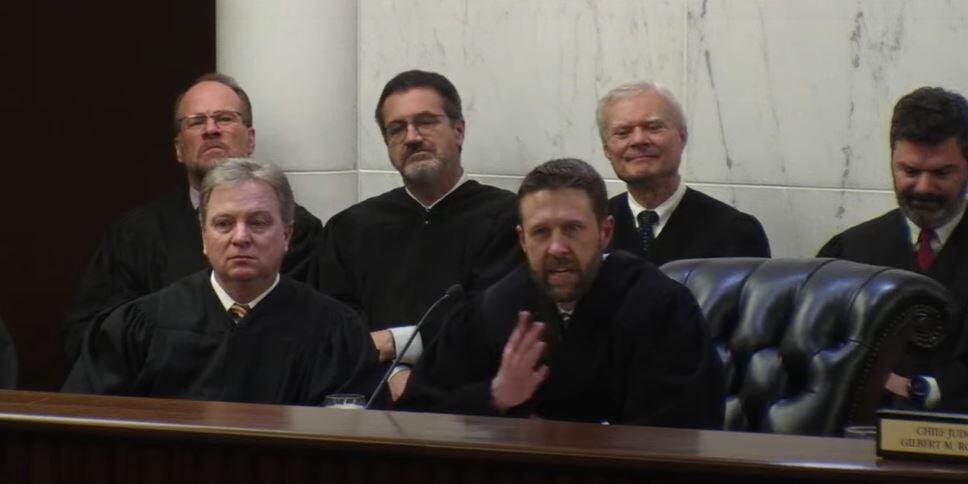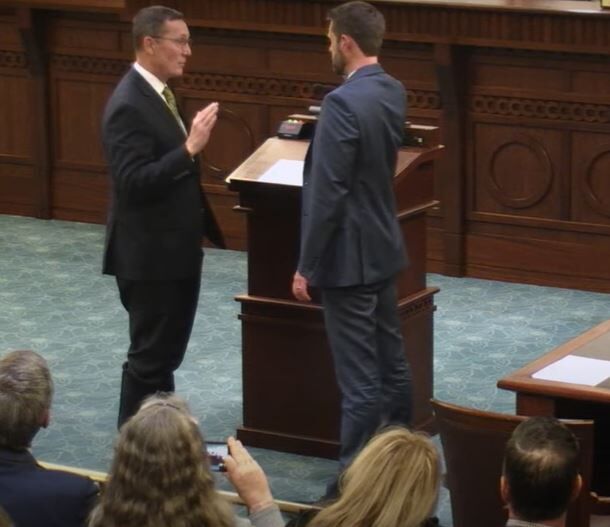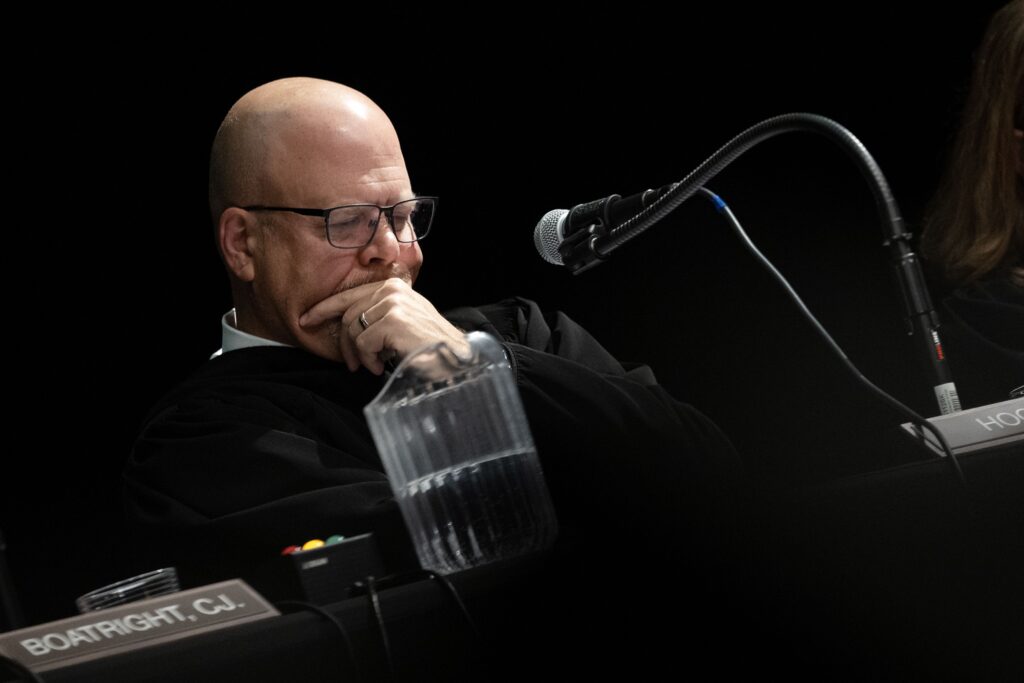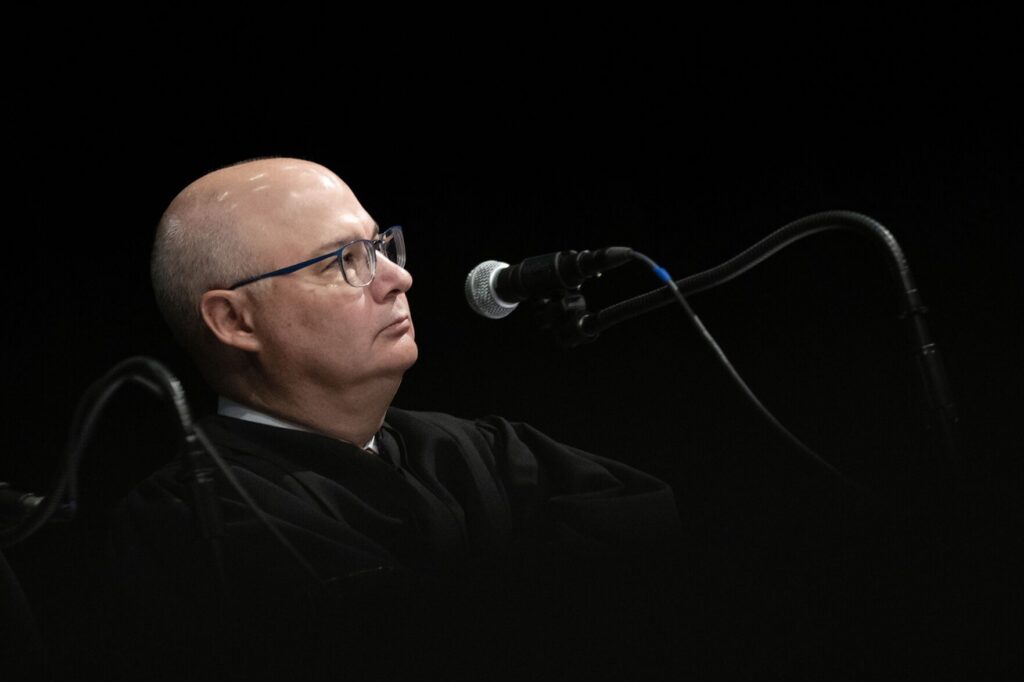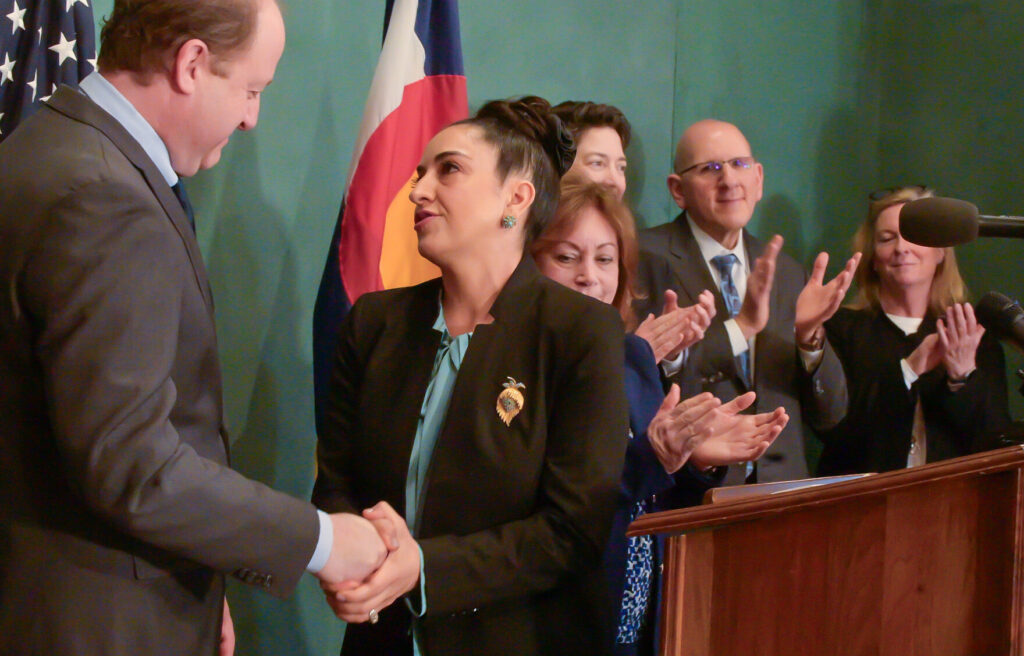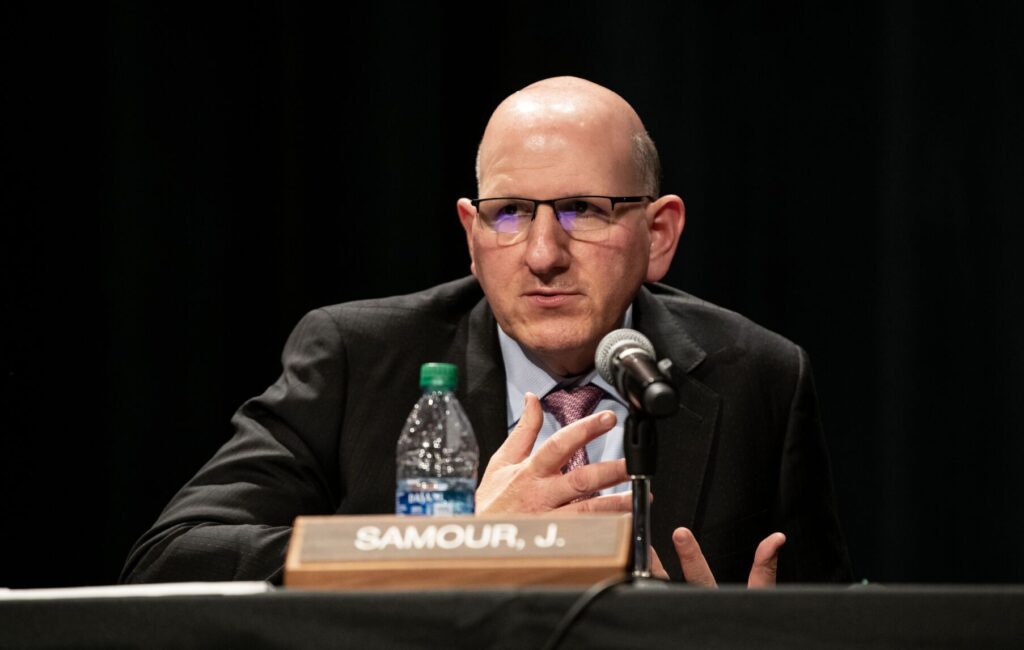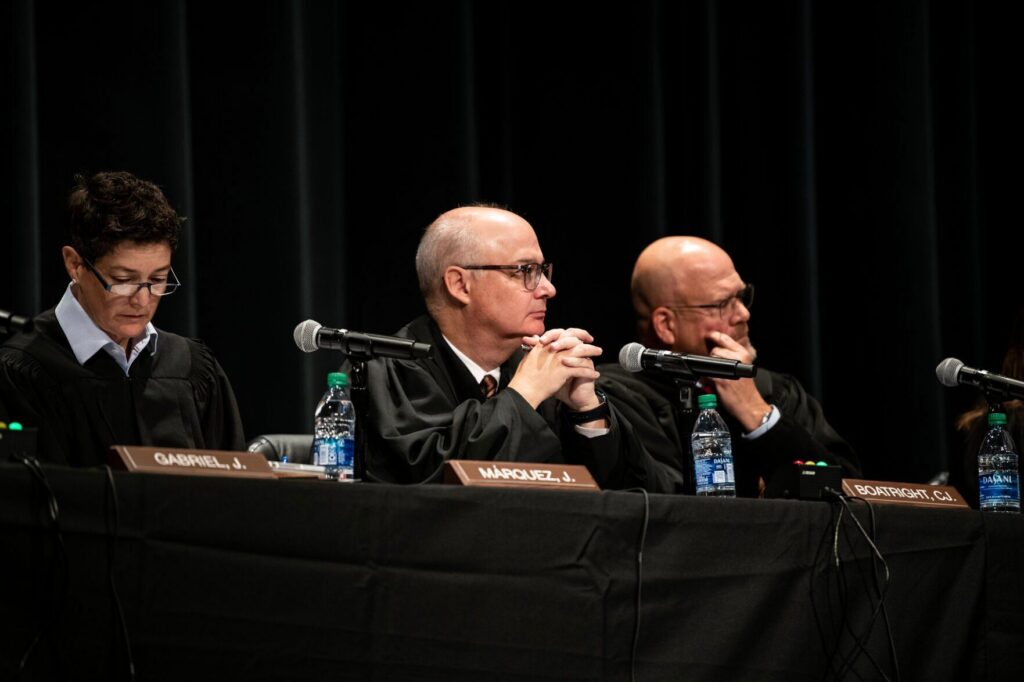Karl Schock, judge with ‘big plans,’ officially sworn in to state’s Court of Appeals
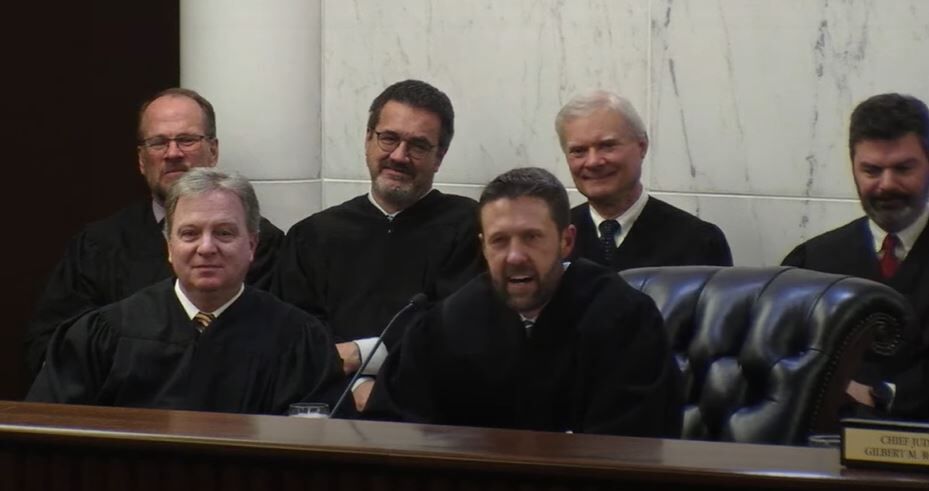
When Karl L. Schock met the woman he would later marry, he introduced himself, in her recollection, by saying: “Hi, I’m Karl and I have big plans.”
“I promise that’s an unfair paraphrase of my first words to my future wife,” Schock insisted as his colleagues on the state’s Court of Appeals laughed.
On Thursday, Schock held his formal swearing-in ceremony, known as an investiture, as one of the 22 members of Colorado’s second-highest court. Schock, 42 this year, took office in November after Gov. Jared Polis appointed him and Judge Katharine E. Lum to a pair of vacancies.
“Not everyone gets to come onto the court with a brand new friend, but if you can swing it I highly recommend it,” Schock said to Lum during the investiture. Lum’s ceremony is scheduled for April.
The Court of Appeals issues opinions in more than 1,600 cases per year. There has been substantial turnover on the court in recent years, with Polis appointing nearly half of its membership in his first term alone.
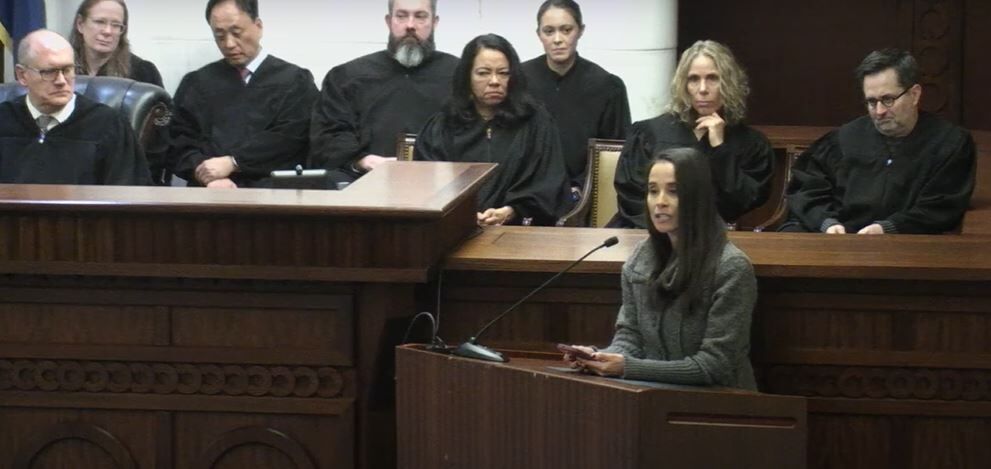
Kara Veitch, Polis’ chief legal counsel, spoke about Schock’s educational and professional credentials – being first in his class at the University of Colorado’s law school and going on to argue 29 cases before the federal appeals court based in Denver during his time at the U.S. Attorney’s Office.
But Veitch also described Schock’s community service, including his work with newly-arrived refugee families from the Middle East and involvement with the Colorado African Organization, which also assisted refugees and asylum-seekers.
“It is clear that Judge Schock cares about all Coloradans no matter their religion, race or background,” she said. “And it is this type of judge that we need on the Court of Appeals.”
After graduating from law school in 2006, Schock clerked for the U.S. Court of Appeals for the 10th Circuit and then worked in private practice, primarily on corporate litigation. In 2015, he joined the U.S. Attorney’s Office, where he represented the federal government.
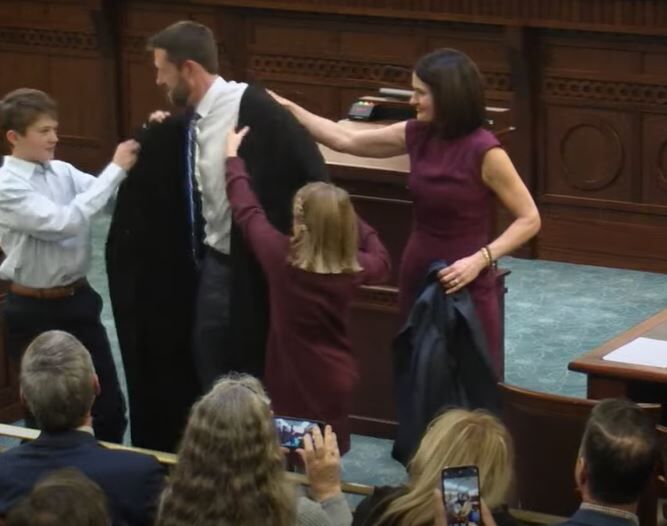
Specializing in appeals, his workload involved primarily criminal cases, with 30% being civil claims. Schock defended Colorado Springs police’s use of a search warrant that the 10th Circuit later found unconstitutional, advocated against allowing an inmate to sue for an alleged assault by a prison guard, and argued in favor of dismissing a Muslim prisoner’s religious liberty claims.
“There is just one drawback,” Schock wrote in his Court of Appeals application about his legal work. “As a government attorney, it is my role to argue the position of the government in every case …. A seat as an appellate judge would offer the opportunity to continue doing the substantive work I enjoy, freed from the role of advocate – to approach each case with the single-minded purpose of doing what is right under the facts and the law.”
Schock added that he was “sensitive to the ways in which background can shape perspective, and I am committed to examining my own blind spots with an open mind.”
Attendees at Schock’s investiture heard from his father, Charlie Schock, a recently-retired lawyer who worked in criminal defense and family law in the Schocks’ home state of Arizona. He described Karl as a marathoner, a triathlete and someone whose musical talent came from his mother, Kathy, an elementary school music teacher for 28 years.
“As I read his first published opinion last week,” said Charlie Schock, “I couldn’t help but think about how hard he worked to get to this stage of his career and how well-equipped he is to be on this court.”

Chief Judge Gilbert M. Román told attendees that Karl Schock was “not supposed to be here,” as his original career path reportedly involved doing public relations for the Arizona Cardinals. Román complimented Schock’s legal writing skills, which he learned from the man who administered his oath of office, former Court of Appeals Judge Robert M. Russel. Román also praised Schock’s ability to not take himself too seriously.
“Karl is a tremendously talented air band guitarist,” he observed. “We found that out at our recent court-wide holiday party.”
Schock addressed his two young children when speaking about his previous attempts applying to join the Court of Appeals.
“I hope you’ll always remember the times I failed,” he said. “The time we danced in the kitchen to Shakira’s ‘Try Everything’ on the day I found out that I hadn’t been selected the last time. And remember those as much as the times that I succeeded because guess what? Life will give you both.”
He concluded by thanking his parents for demonstrating to him the value of empathy, and that people are entitled to dignity and respect. Schock said he feels the weight of ensuring litigants receive fair and equal treatment under the law.
“It’s a weight that I hope I never stop feeling,” he said.
